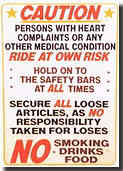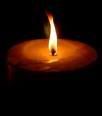Thursday, October 04, 2007
The War and Ken Burns
Much to admire, enjoy, & think about in Ken Burn's new documentary, The War. The style seems cliche now, one tends to forget Burns polished & popularized it 17 years ago in what remains his best work, The Civil War.
The War is mostly a documentary version of the popular soldier's eye view history books that have been published about WWII over the past few decades. It also matter-of-factly incorporates important revisionist history. The Tuskegee Airmen, 761st Tank Battalion, & the Japanese-American 442nd Regimental combat team & 100th Infantry Battalion weren't in my high school history books. The forced removal of Japanese-Americans to concentration camps was given passing attention there & was definitely not a class discussion topic. (The most egregious omission in those Cold War history books concerned the Soviet Union's role in defeating Germany).
Burns packed The War with photos & film I'd never seen before. World War Two was so well documented by government, the armed forces, industry, news media, & individuals, it was no surprise he found so much stuff. It's still just a fraction. He could probably throw together two more supplementary series with what he didn't use. That's certainly one reason he decided to concentrate on only four American locations & do his digging there. Any four towns & cities would reveal historical treasures & personal stories equally touching. A former girlfriend of mine has entire World War Two scrapbooks she fished out of curbside trash piles in suburban Union County, thrown out probably by sons & daughters when their parents died or were packed off to small senior apartments. Unfortunate this documentary wasn't made a decade earlier; everyone seeing it will think twice before discarding those old photos & mementos.
Burns also didn't hold back on the blood, killing & horror. Or on what we now call Post-Traumatic Stress Disorder, so stigmatized in civilian life that few vets would openly seek treatment for it; even so there weren't any really good methods for treating it. It was a private agony & we have no way of knowing how many lives it ruined. Only the families know.
The personal view of The War is what I most appreciate. But it assumes we already have a general classroom knowledge of the history of World War Two.
I'm a baby boomer. I was a child in the 1950's. World War Two was not only the central experience for my parent's' generation, but also for people born in the 1930s - like the Scanlon sisters next door, two teenage sweeties who used to pick me up, carry me on to their front porch, hug & tickle me. They were in grammar school during The War. Did they have a victory garden & collect tin foil? How did they feel when a handsome young guy in their small town was killed & the Gold Star went in the window? How did that news travel? How did the neighbors treat each other. Burns thought of these questions. Fortunately, I've spent many interesting hours listening to an older friend tell me about her World War Two childhood, from rationing to the kinds of games they played, how it affected school, the propaganda, the delays in getting accurate news from the battle fronts, & how children were able to forget the war & be children. My central childhood cultural experience was the aftermath, American Triumphalism (despite the Korean War). I was always curious what it was like to live in my house, on my street, in my hometown, Roselle Park, during World War Two. I just heard the echoes. In a church social hall in Linden NJ I saw hanging on the wall a fading amateur oil painting of a WWI doughboy & a Boy Scout looking up at a blue sky filled with WWII fighter planes. It may have been copied from a popular illustration, but fighters had been built just down the road at the GM plant & flown off from Linden Airport. Imagine the sound overhead.
We need to see the broader picture of the war; the ideologies & governments, the grand strategies & great battles, the maps with the lines & arrows. We also need to remember why decisions were made as well as why they were right or wrong decisions. There's an increasing disconnect in America favoring historical hindsight bias over understanding what was known & what was considered realistically possible when events were actually happening. I knew a man who designed a piece of the atomic bomb without knowing that's what he was doing until after it was dropped. His limited view could be compared to a G.I.'s. But do we now believe we even need to learn our own history in all its breadth & depth? Or only those parts that concern our particular interest group?
The War is mostly a documentary version of the popular soldier's eye view history books that have been published about WWII over the past few decades. It also matter-of-factly incorporates important revisionist history. The Tuskegee Airmen, 761st Tank Battalion, & the Japanese-American 442nd Regimental combat team & 100th Infantry Battalion weren't in my high school history books. The forced removal of Japanese-Americans to concentration camps was given passing attention there & was definitely not a class discussion topic. (The most egregious omission in those Cold War history books concerned the Soviet Union's role in defeating Germany).
Burns packed The War with photos & film I'd never seen before. World War Two was so well documented by government, the armed forces, industry, news media, & individuals, it was no surprise he found so much stuff. It's still just a fraction. He could probably throw together two more supplementary series with what he didn't use. That's certainly one reason he decided to concentrate on only four American locations & do his digging there. Any four towns & cities would reveal historical treasures & personal stories equally touching. A former girlfriend of mine has entire World War Two scrapbooks she fished out of curbside trash piles in suburban Union County, thrown out probably by sons & daughters when their parents died or were packed off to small senior apartments. Unfortunate this documentary wasn't made a decade earlier; everyone seeing it will think twice before discarding those old photos & mementos.
Burns also didn't hold back on the blood, killing & horror. Or on what we now call Post-Traumatic Stress Disorder, so stigmatized in civilian life that few vets would openly seek treatment for it; even so there weren't any really good methods for treating it. It was a private agony & we have no way of knowing how many lives it ruined. Only the families know.
The personal view of The War is what I most appreciate. But it assumes we already have a general classroom knowledge of the history of World War Two.
I'm a baby boomer. I was a child in the 1950's. World War Two was not only the central experience for my parent's' generation, but also for people born in the 1930s - like the Scanlon sisters next door, two teenage sweeties who used to pick me up, carry me on to their front porch, hug & tickle me. They were in grammar school during The War. Did they have a victory garden & collect tin foil? How did they feel when a handsome young guy in their small town was killed & the Gold Star went in the window? How did that news travel? How did the neighbors treat each other. Burns thought of these questions. Fortunately, I've spent many interesting hours listening to an older friend tell me about her World War Two childhood, from rationing to the kinds of games they played, how it affected school, the propaganda, the delays in getting accurate news from the battle fronts, & how children were able to forget the war & be children. My central childhood cultural experience was the aftermath, American Triumphalism (despite the Korean War). I was always curious what it was like to live in my house, on my street, in my hometown, Roselle Park, during World War Two. I just heard the echoes. In a church social hall in Linden NJ I saw hanging on the wall a fading amateur oil painting of a WWI doughboy & a Boy Scout looking up at a blue sky filled with WWII fighter planes. It may have been copied from a popular illustration, but fighters had been built just down the road at the GM plant & flown off from Linden Airport. Imagine the sound overhead.
We need to see the broader picture of the war; the ideologies & governments, the grand strategies & great battles, the maps with the lines & arrows. We also need to remember why decisions were made as well as why they were right or wrong decisions. There's an increasing disconnect in America favoring historical hindsight bias over understanding what was known & what was considered realistically possible when events were actually happening. I knew a man who designed a piece of the atomic bomb without knowing that's what he was doing until after it was dropped. His limited view could be compared to a G.I.'s. But do we now believe we even need to learn our own history in all its breadth & depth? Or only those parts that concern our particular interest group?
Labels: culture, education, growing up
Comments:
<< Home
"If a nation expects to be ignorant and free, in a state of civilization, it expects what never was and never will be." Thomas Jefferson
I'm not to fond of the schmaltzy, overly-sentimental music the Burns chose for "The War," but I have been glued to the TV whenever it has come on a number of PBS stations. My favorite parts of the documentary have really not been the photos and films but the interviews with the surviving veterans.
I heard a piano version of Elgar's "Nimrod" from Enigma Variations, & I thought, that's too easy a pick, & yes too sentimental, & then it bugged me because Elgar is British & I know lots of suitable American classical music.
It's funny becuase my dad and I were discussing the music (we felt it was not as effective as his 'Civil War' soundtrack) but I did not know what tunes he did use nor what tunes he should have used.
Post a Comment
<< Home















